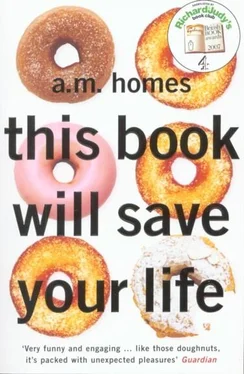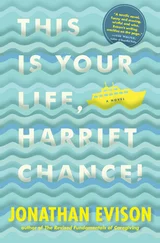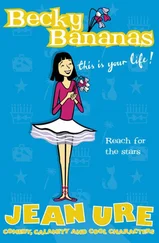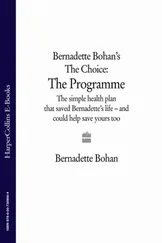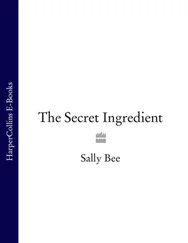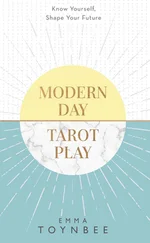Richard nods.
"I've got a script; do you think you could get it to him?"
"Is that why you came back — to give me your screenplay?"
He nods. "And I wanted to see if the horse was OK."
"Lucky horse. Horse named Lucky."
"The horse ate the probe?"
"No, he just pulled it out."
"I'd better be getting back out there; I am the night man, after all. Thanks for the snack."
"No problem."
"You know, I hate to be the one who tells you this, but you should be thinking about where you're going to go."
"What do you mean?"
"When the hill goes it's going to take something with it. Probably won't take your whole house, nothing that dramatic. But it'll need work, and it's best not to be cheap about it— that's something you'll end up regretting. Night-night."
IN THE early morning it rains, a hard, soaking rain, a rain of no rain for months, a pouring, drenching rain. The soil, as if newly allergic, rejects the rain, the water sits on top. There's a surface tension that won't be easily broken. Rain splashes down onto the dirt and bounces off, running over the soil, down the street, pouring into the storm drains.
He's up early, despite having been up in the night. The rain is still coming down. He does his exercises, his homework, looking at the overnights; fingers flying, he types, trades, this is the clickety-clack of the cash keys. He reads the market, the smell of its breath, the timbre of its snore; he anticipates what will come next. Head and shoulders, top and bottom — he thinks of all the catchy phrases they used to use to describe the shape of things.
Seven a.m. He's poring over his date book, trying to piece it all together. Cecelia said he hadn't left the house for weeks. If anyone had asked him, he would have sworn that he'd been out.
Before the trip to the hospital — he marks the date of the trip to the hospital in his book with a big "X" — when had he last left the house? A few days before? Maybe it was the week before? Maybe he went to the dentist? He looks at his date book — the dentist's appointment was on January 22. He flips through the pages. On March 27 he had dinner with an old friend from New York who called at the last minute. On April 15 he had tickets to a play — he'd ordered them just after the dinner on the 27th in a fraction of a second when he felt human again. When April 15 rolled around, he couldn't think of anyone to invite — so he went alone and kept his jacket on the seat next to him.
After that he can't come up with much. He looks in his computer; every day he saves a chart of his performance. According to the charts, nothing looks out of the ordinary, except that when he wasn't online he apparently didn't exist.
He goes to the window. The depression is a muddy pit; the footprints that were so clear yesterday, the bite of the sole of each shoe, are melting. He thinks the hole might even be filling, gathering water, becoming a cistern.
He is standing at the glass, watching the woman in the red suit — swimming in the rain. How long has he been watching her? How long has she been in the red suit? There were others: blue with a pattern, fluorescent orange, he remembered that one, it made him nervous, made him think of hunting season, the fluorescence of hazard, caution. And before that something yellow. The red is his favorite; the red is perfect, vibrant, the color of the life force, coursing through. Would a person in the water worry about getting wet?
Lusardi. He needs to see Lusardi again, to ask him what it means to not know anything. He can't stay home. He checks the computer once more, and then he's off down the hill, towards Anhil. The radio is filled with warnings and road closings, flash floods, slide conditions; everything is about impermanence.
He parks, and runs into the donut shop holding a newspaper over his head.
"In California they pretend it is never going to rain, like it is not possible; no one keeps an umbrella." Anhil laughs. Richard puts his wet paper on the counter and sits. "You left your cereal; I've been eating it. It's good, like cardboard but fruity."
"It's kiln-dried hand-pressed high-fiber flakes with fruit juices — berry extracts."
"Maybe I could sell it?"
"Maybe."
Anhil leans forward and looks at Richard more seriously. "You look worse."
"I was up most of the night."
"How is your heart?"
Before he can answer, the homeless man comes in. He looks at both men — Anhil is about to shoo him out and Richard is patting the empty stool next to him.
"Sit down," Richard says. "I'll buy you a donut — don't beg."
"Do you work here?"
"Just visiting."
"Me too," the man says.
As soon as the man sits, Richard is reminded that these things are not as easy as one hoped they would be. The man smells. Anhil is giving Richard a dirty look.
"What do you want?" Richard asks. "What are you hungry for?"
"Whatever you want."
"I want you to have what you want. Order whatever you like."
"Don't tease me," the man says. "I'll take whatever you're giving."
Anhil gives the man a donut, on a plain white plate.
"Coffee, tea, orange juice, milk?" Richard asks.
"That sounds good."
"All of them?" Anhil wants to know.
"Whatever you like," Richard tells the man.
"OK," the man says.
There is a pause. "One of each," Richard says.
Anhil isn't saying anything, but you can tell he's annoyed. The man eats the donut, dipping it into his coffee, and then wipes his hands on a napkin, drinks his orange juice, and gracefully sips his tea. "Good tea," he says. He is not without manners. He eats looking down, trying not to make much of himself. When he's finished, he climbs off the stool and heads out the door — not lingering.
"Have a nice day," Richard calls after him, annoyed that the guy didn't say thank you.
The man turns around. "Have a nice day. I'm homeless. What does that mean, 'Have a nice day'? Go fuck yourself."
"You can't change the rules overnight," Anhil says. "Sorry."
"It's fine; in fact, it's better — he won't be back."
Richard watches Anhil in the kitchen. There's grace to what he does, how he runs the big mixer, frosts the donuts. He's got a dancer's athleticism — his body is long and lean, nothing extra.
"Do you go to a gym?"
"I hate exercise. Eight meals, that's how I keep my shape. I eat one thing at each: a potato, a piece of meat, some cheese. The only thing I like too much — my wife's chicken stew, prunes, olives — but you never see a man fat from chicken stew. Why are we talking like this, about nothing, when I know you come here to talk about important things?"
"My son is driving out to California with my nephew; they're leaving today."
"Jack Korea?"
"Who is Jack Korea?"
"The poet with the beaters… 'I have seen the finest minds of my generation
"Jack Kerouac and Allen Ginsberg; how do you know who they are?"
"I am from another country, not another planet. My cousin taught me — he was Mr. Revolutionary. Unfortunately, he's no longer with us." He crosses himself.
"Are you Catholic?"
"No; why?"
"Because that's what that is, the crossing, it's Catholic."
"I saw it in a movie. After someone died, the man did that, and I thought that's what people did — it looked good."
"It's the sign of the cross."
There is a pause.
"May I drive your car?"
"It's raining."
"The car has a good roof."
"OK, fine." Richard hands Anhil the keys and goes behind the counter.
Anhil is gone, and a few minutes later a man comes in who looks just like Anhil.
"Mr. Mercedes?' he asks. Richard doesn't say anything; he's not sure this is not some sort of a joke.
The man puts out his hand. "I'm George, the brother."
Читать дальше
